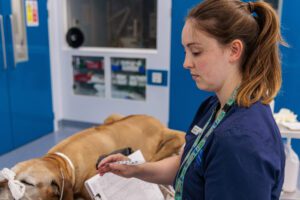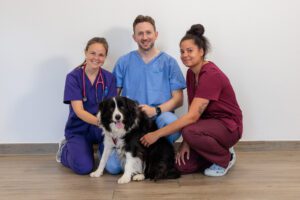Summary
Abstract Case 1: A nine-month-old entire male beagle presented with a history of chronic diarrhoea, intermittent haematochezia and rectal prolapse. An exploratory laparotomy performed prior to presentation reported visualisation of a suspected caecocolic intussusception. Physical examination revealed a non-painful, mid-abdominal mass and laboratory findings were consistent with non-specific gastrointestinal disease. Abdominal CT identified intraluminal inversion of the caecum into the ascending colon. Intraoperatively, the inversion was unreducible and a colotomy followed by stapled typhlectomy was performed. Case 2: An eight-year-old neutered male domestic shorthair presented with a history of chronic haematochezia and intermittent partial rectal prolapse. Physical examination and laboratory findings were unremarkable. Abdominal CT revealed a caecal inversion. A midline coeliotomy followed by manual correction of the inversion and a stapled typhlectomy were performed. In both animals, CT allowed an accurate diagnosis and appropriate management of caecal inversion, a rarely reported small animal large intestinal disease.





